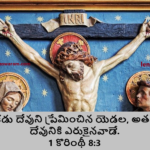Penitential practices during Lent vary across different Christian denominations, reflecting diverse theological perspectives and traditions. Here’s an overview of how some denominations observe Lent through penitential practices:
-> Anglican/Episcopal
Anglicans and Episcopalians observe Lent with fasting, prayer, and almsgiving. They may also participate in the Stations of the Cross, a devotion that commemorates Jesus Christ’s last day on Earth. The Book of Common Prayer provides guidelines for Lent, emphasizing repentance and self-examination .
-> Eastern Orthodox
The Eastern Orthodox Church has a strict fasting regimen during Lent, abstaining from meat, dairy, and, on some days, olive oil and wine. This period is also marked by increased prayer services, such as the Liturgy of the Presanctified Gifts, and a focus on charity and almsgiving. The aim is to cleanse both body and soul in preparation for Easter .
-> Lutheran
Lutherans observe Lent with a focus on repentance and reflection on one’s baptism. While fasting is not mandated, individuals may choose to give up certain luxuries as a form of self-discipline. Lutherans also engage in additional prayer and attend services that may include the Stations of the Cross or midweek Lenten services .
-> Methodist
Methodists participate in Lent through fasting, prayer, and acts of charity. They may also make a personal sacrifice by giving up a particular food or activity. The United Methodist Church encourages the observance of Holy Communion more frequently during Lent as a means of grace to grow closer to God .
-> Roman Catholic
Catholics are required to fast on Ash Wednesday and Good Friday and abstain from eating meat on all Fridays during Lent. They are also encouraged to give up personal luxuries and perform acts of penance and charity. Confession (the Sacrament of Reconciliation) is emphasized as a way to seek God’s mercy for sins [3].
-> Reformed Churches
In Reformed traditions, including some Presbyterian and Congregationalist churches, Lent is observed with a focus on personal repentance and renewal of faith. Practices may include fasting, prayer, and reading Scripture, but there is less emphasis on formal rituals. Participation varies widely among congregations .
-> Non-denominational and Other Christian Churches
Among non-denominational and other Christian churches, Lenten observance can vary significantly. Some may adopt practices similar to those of liturgical traditions, such as fasting and almsgiving, while others may focus more on personal spiritual disciplines without formal Lenten rituals .
-> Summary
Across Christian denominations, Lent serves as a time for believers to reflect on Jesus Christ’s sacrifice, repent of sins, and prepare their hearts for the celebration of Easter. While the specific practices and the emphasis placed on them may differ, the underlying themes of repentance, prayer, and charity are common to all [2][3][4][5].


